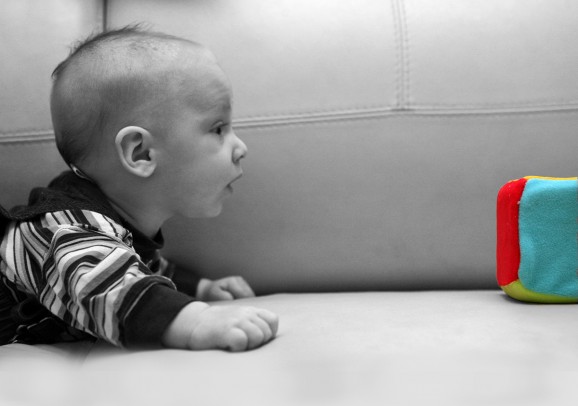New learning opportunities may help kids with disabilities
 Through everyday activities, parents will teach essential skills to their young children who have disabilities, using new methods developed by researchers at UIC and other universities.
Through everyday activities, parents will teach essential skills to their young children who have disabilities, using new methods developed by researchers at UIC and other universities.
The study received a $1.5 million grant from the Institute of Education Sciences, one of only 13 awarded from 900 applications.
The research is led by Christine Salisbury, UIC professor of special education, Patricia Snyder, professor of early childhood studies at the University of Florida, and Juliann Woods, professor of communication sciences and disorders at Florida State University.
Early-learning practitioners will show parents and caregivers how to recognize and use learning opportunities in a child’s everyday activities, like playing peek-a-boo, drinking from a cup, rolling a ball or getting into a car seat.
The researchers will develop a visual cueing system with guiding questions to help parents recognize:
- opportune moments to teach their child essential skills
- what to teach, when and how
- what their goal is in teaching
- how to know if learning is taking place.
“This cueing system is expected to improve the consistency of parent actions and the learning outcomes of their child, ” Salisbury said.
The researchers call the approach EPIC — initials for “embedded practices and intervention with caregivers.”
“The EPIC intervention is unique in that it will develop two components — coaching and intervention — that, together, are expected to improve the professional practice of early intervention providers and the learning outcomes of caregivers and children involved in home-based, early intervention services,” Salisbury said.
The researchers say the new approach could benefit tens of thousands of the nation’s youngest children. According to the U.S. Department of Education, nearly 350,000 children under age 3 who have disabilities are enrolled annually in federal programs providing early intervention services.
Recent studies identify the use of embedded instruction in everyday activities as a recommended practice for young preschoolers with disabilities, but researchers say additional studies are needed to identify the best methods for coaching parents to engage their children in natural environments when learning opportunities arise.
“Early intervention for young children with disabilities traditionally has involved practitioners working directly with the child. Very little time is spent supporting regular interactions and learning opportunities between the parents and child,” Woods said.
The three-year study began in June at each university, with focus groups, practitioners and parents evaluating the materials. A trial involving eight children and their families and providers will follow.
In the second year, researchers will test a prototype, then revise as needed. In the third year, they will compare an EPIC test group with another receiving traditional intervention.
